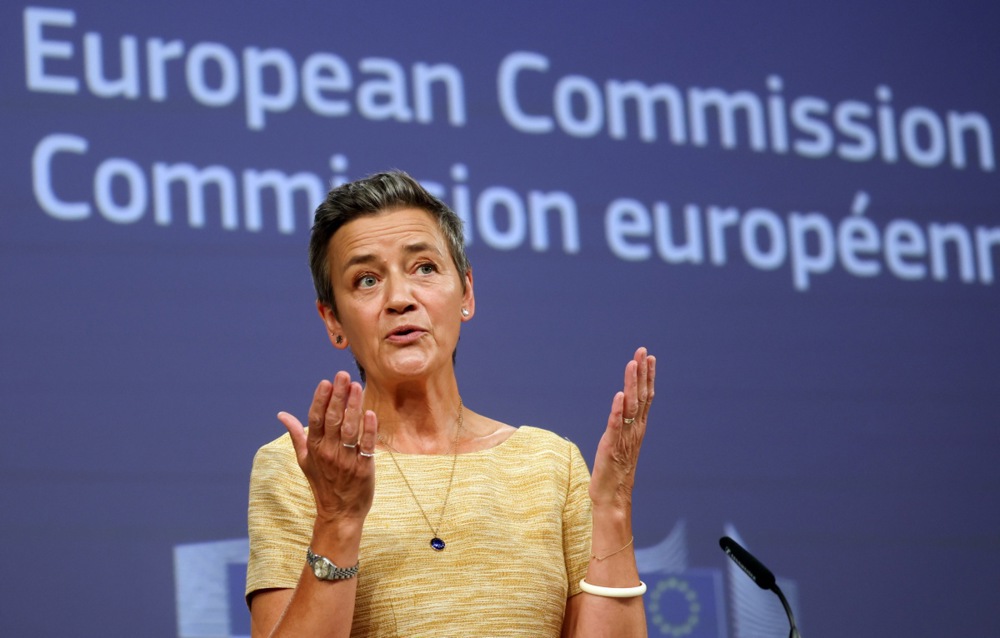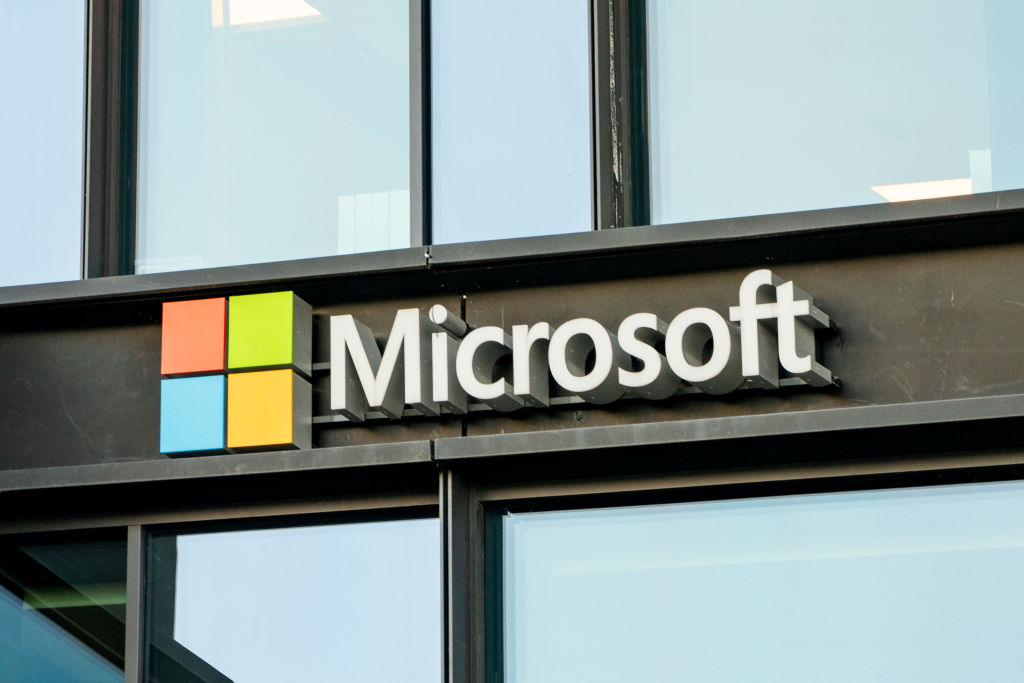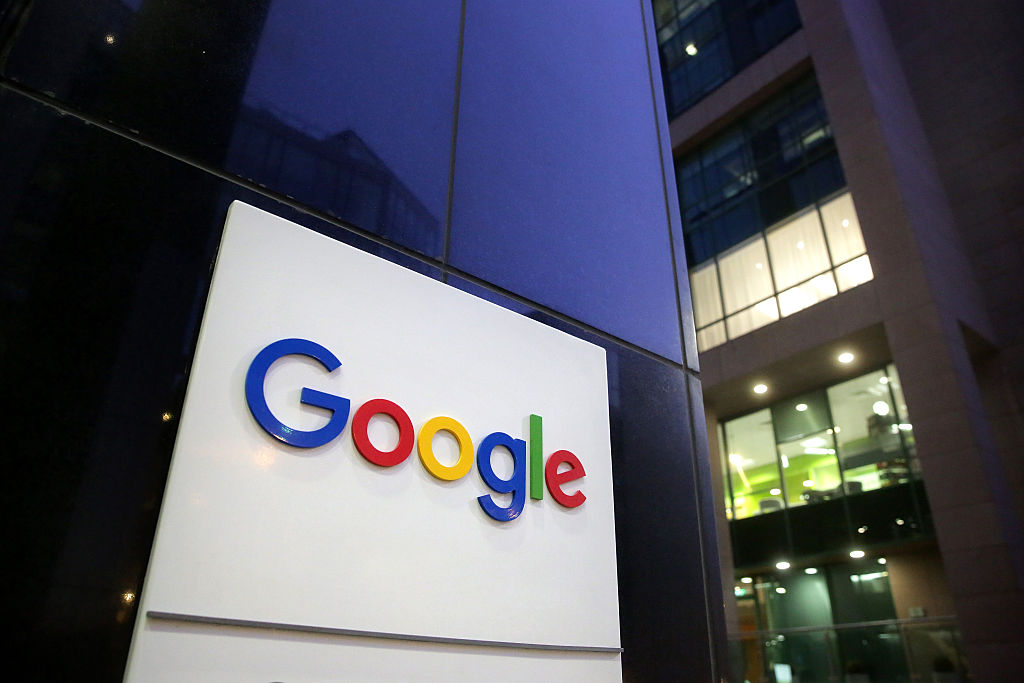Google has launched an antitrust complaint with the European Commission against its cloud rival Microsoft over allegations it is stifling competition with its Azure cloud computing ecosystem.
According to Google, Microsoft demands large financial penalties from businesses that run its Windows products on other cloud services.
This, they say, prevents users from transferring projects from Microsoft to Google’s cloud servers, and has violated European competition law and “severely limited consumer choice”.
Microsoft formerly dominated the market with its Windows Server licences, said Amit Zavery and Tara Brady from Google Cloud Services in a blog post.
They added that, after the advent of cloud computing, “customers wanted to move their previously purchased licenses to other cloud providers, and in some cases to multiple clouds, to provide additional resiliency and security”.
But Microsoft prevented this, they argue.
“Initially, Microsoft allowed them to do this. But as [Microsoft’s] Azure faced more competition, Microsoft introduced new rules that severely limited customer choice,” the post read.
“One of the most significant restrictions occurred in 2019, when Microsoft adopted new licensing terms that imposed extreme financial penalties on businesses wanting to use Windows Server software on Azure’s closest competitors, such as Google Cloud and AWS.”
In addition to the fines, Microsoft allegedly introduced additional obstacles to prevent people from switching services, including limiting security patches.
Microsoft’s surcharges for users of its software created excess costs of €1 billion a year for European businesses, according to a study by Professor Frédéric Jenny, a French economist and chairman of the OECD’s Competition Committee.
“Restrictive licensing also stifles innovation and competition, preventing European companies from using multiple clouds, including European cloud providers. According to one recent study, after the 2019 licensing changes, Microsoft’s cloud market share suddenly skyrocketed, largely at the expense of European providers,” said Jenny.
Zavery and Brady said Microsoft’s practices also harmed security and reliability in Europe, because a lack of product diversity created “a single point of failure.”
As an example, they pointed to the Microsoft outage in July, which caused problems around the globe. Microsoft itself blamed EU regulation for the fault.
Microsoft’s restrictive cloud licensing practices “hurt companies and impede European competitiveness”, argued Zavery and Brady.
Google’s complaint could likely lead to an inquiry by the European Union on unfair competition. A spokesperson of the European Commission told Brussels Signal the Commission “received the complaint, which we will assess under our standard procedures”.
Microsoft is already facing an EU antitrust investigation over Teams, the chat and videoconference application.
EU officials said that Microsoft violated EU antitrust laws by bundling Teams with other popular business apps.
An EU antitrust inquiry could impose a fine of up to 10 per cent of Microsoft’s global revenue.
Microsoft’s revenue reached $211 billion (€189 billion) in the last fiscal year.
UK authorities are also investigating Microsoft’s cloud practices.
Alphabet unit Google won a legal challenge on Wednesday against a €1.49 billion European Union antitrust fine, while Qualcomm failed to repeal a penalty. https://t.co/6d3vTTMmtA
— Brussels Signal (@brusselssignal) September 19, 2024
Google and Microsoft both have accused each other of monopolistic actions in the past.
Google dominated the search engine world, as well as the browser space with its Chromium ecosystem — on which the eponymous Chrome software is based on.
Microsoft meanwhile is viewed as being far ahead of the pack when it comes to cloud services, business software and PC operating systems.
Microsoft has faced similar antitrust accusations in the past. In November 2022, other cloud infrastructure providers filed another complaint, which they withdrew in July this year following a $22 million (€19.7 million) deal.
At the time, a Microsoft spokesperson said the company has settled similar cases amicably in Europe. “Having failed to persuade European companies, we expect Google similarly will fail to persuade the European Commission.”
Google said the deal was nothing more than a pay-off while Microsoft continued its practices.
The dispute over cloud platforms came as the platforms emerged as increasingly crucial for developing AI.
Cloud platforms provide scalable, on-demand access to high-performance computing power. Other benefits included that they offered virtually unlimited storage capacity and sophisticated data management tools, scaled up on demand, and were cost-effective.
Likewise, they could be easily integrated with AI systems and could be updated and improved continuously.
The European Commission has fined Apple €1.8 billion for breaking the bloc’s anti-trust rules regarding music streaming. https://t.co/hHfwLJMt6x
— Brussels Signal (@brusselssignal) March 4, 2024





